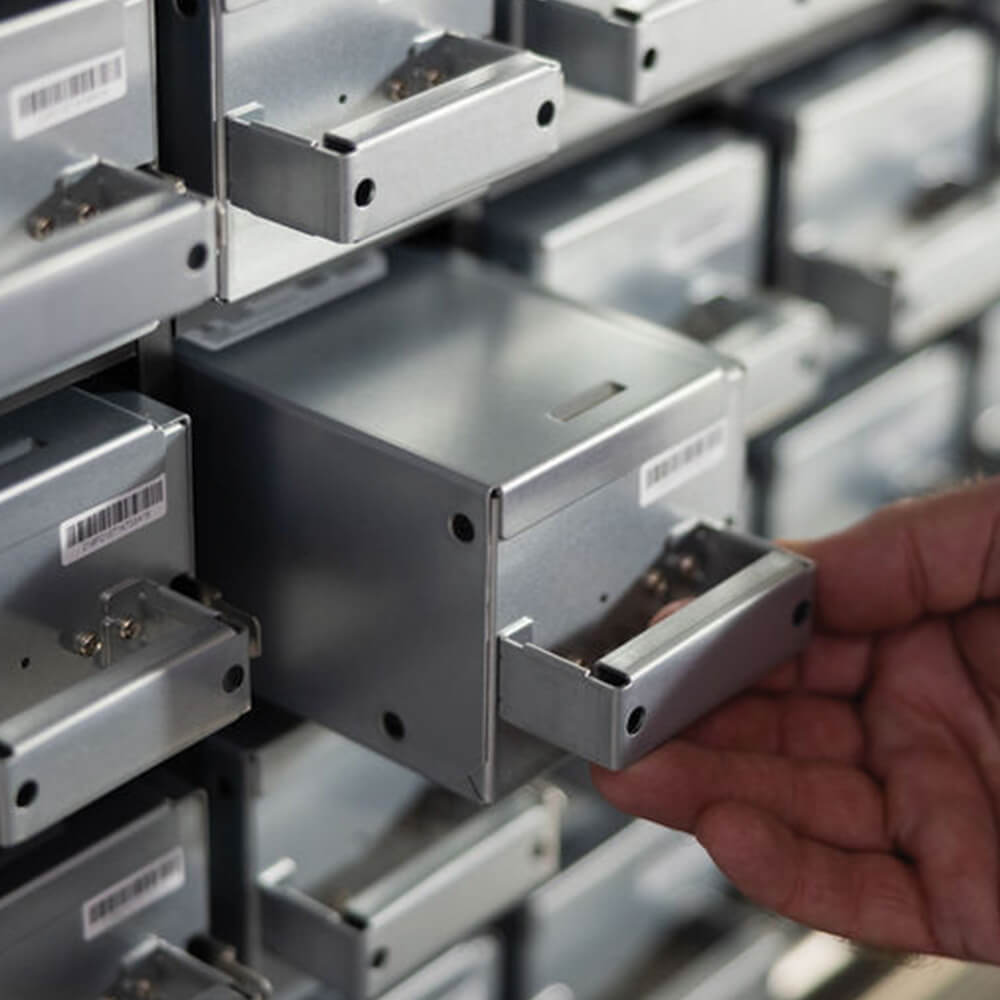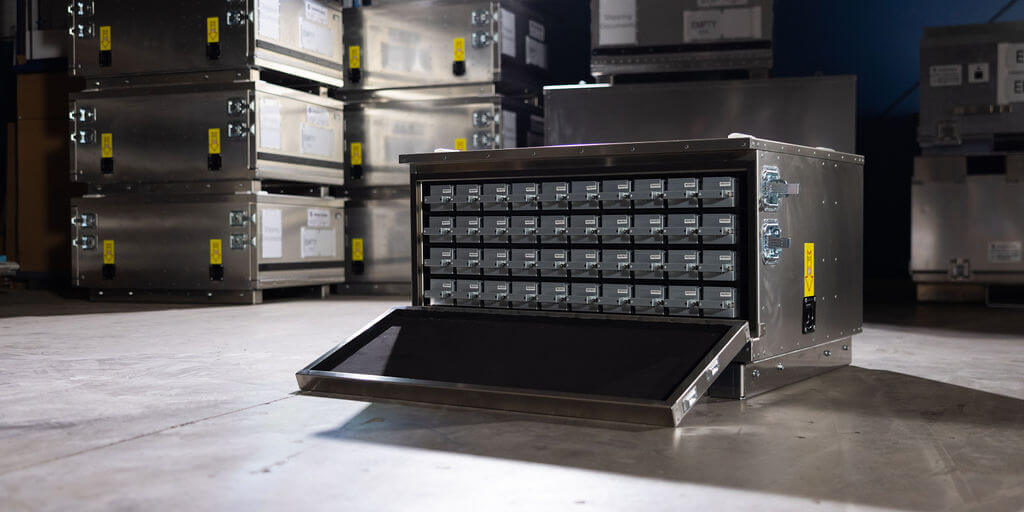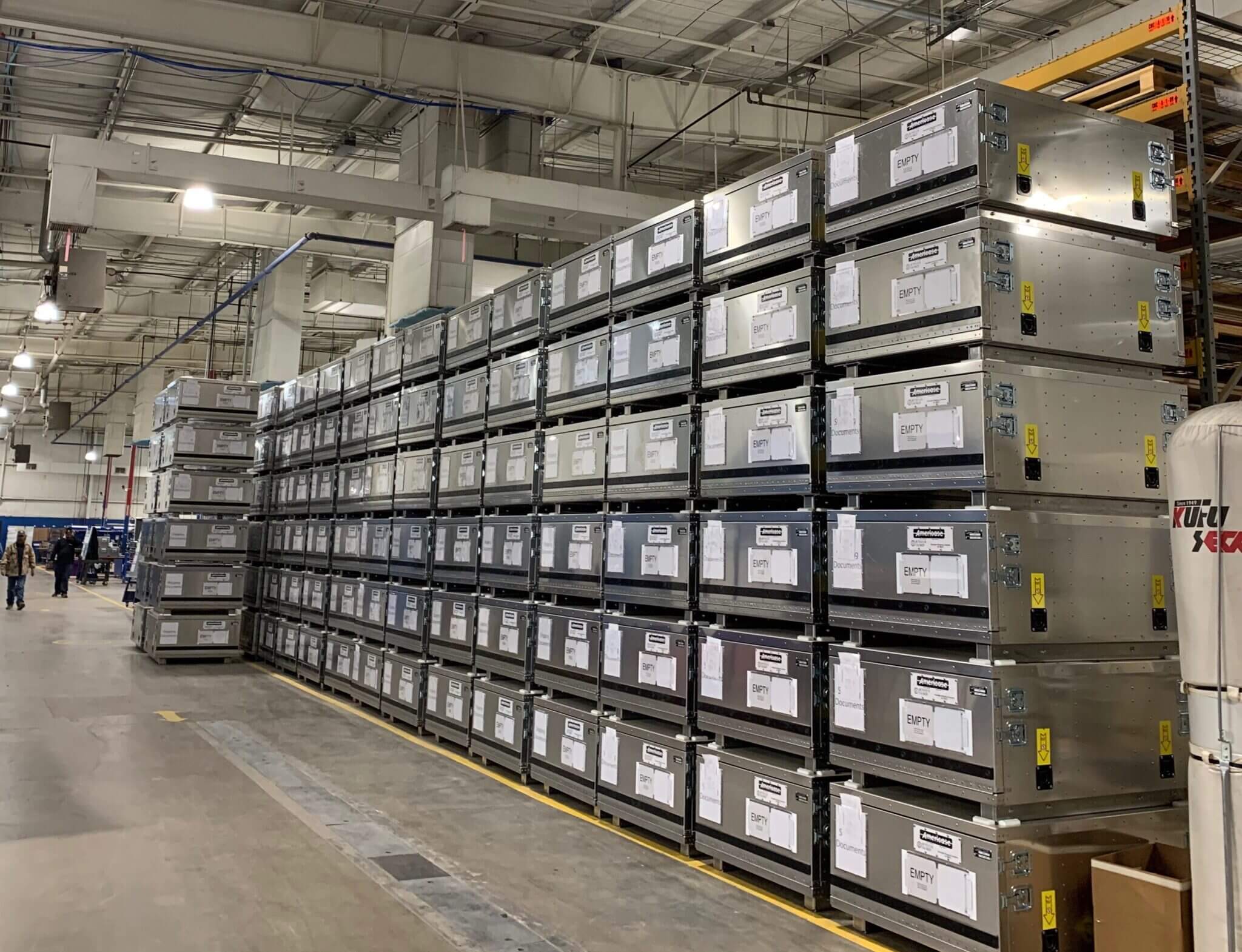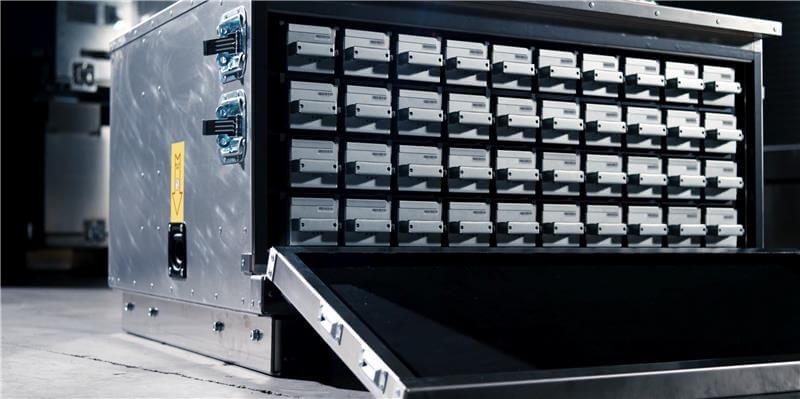The Positive Impact of Ergonomic Lithium Battery Rack Containers
When a storage solution is built only to comply with guidelines, it results in higher costs and minimal efficiency considerations. At Americase, we bring an innovative problem-solving approach to our protection container design so you can trust your high-value BBUs are transported and stored to the highest standards. Each case reduces waste and excess costs by eliminating the need for single use packaging and high insurance premiums. When your goal is increased efficiency, longevity and ROI, Americase will meet you with a top-of-the-line, tailor-made Battery Backup Unit container designed to your needs.
Additional Considerations
When it comes to protecting critical infrastructure like data centers, ensuring the safety, sustainability, and cost-efficiency of energy storage solutions is paramount. As data centers increasingly adopt advanced technologies, the need for reliable backup power solutions, such as rack level lithium-ion Battery Backup Units (BBUs), becomes ever more critical. However, while these solutions deliver multiple advantages and benefits, they also come with new challenges that must be considered and addressed.
Safety and Regulatory Compliance: Mitigating Risks in Data Centers
Safety is the cornerstone of any effective energy storage solution in a data center environment. Rack level lithium-ion Battery Backup Units (BBUs) are integral to ensuring that data centers remain operational during power interruptions, but they also come with their own set of potential risks. Although inherently safe and effective power sources, if mishandled or damaged, lithium-ion batteries can pose a safety risk. The potential for thermal runaway fires and other safety hazards makes it essential to implement rigorous safety standards and protocols.
One of the most effective ways to enhance safety is using robust housing systems that can isolate and contain batteries in the event of an incident. These containment solutions are designed to prevent the spread of fire and keep it safely and effectively contained within the protective case.
Additionally, regular maintenance and safety audits are critical to ensuring that rack level lithium-ion BBUs are stored in compliance with all codes and regulations. Americase BBU cases are engineered and tested to comply with all applicable current and known future regulatory requirements. By adhering to strict safety guidelines, data centers can minimize the risk of accidents, ensure personnel and equipment safety, protect their valuable assets and brand, as well as maintain efficient operations.
Convenience: Streamlining Operations with Reliable Power Solutions
In the fast-paced world of data center operations, convenience and efficiency are key. Lithium-ion BBUs offer a seamless way to ensure continuous power supply without the need for complex manual interventions. This reliability is crucial for maintaining uptime and ensuring that data center operations are not disrupted by power outages or fluctuations. Modern BBUs are designed to be integrated into existing data center infrastructure with minimal disruption. This ease of integration means that data centers can seamlessly maintain or even upgrade their power solutions without significant downtime or additional labor costs. Americase BBU shipping and storage cases are field-repairable and designed for 10+ years of field life, streamlining logistics and reducing downtime.
The modularity of many BBU systems also contributes to operational convenience. Data centers can scale their energy storage solutions according to their needs, adding or removing units as required. This flexibility not only simplifies the process of managing power infrastructure but also ensures that data centers can adapt to changing demands with ease. Americase BBU cases are designed to be scalable so they can meet your needs as your business changes and grows. Plus, stackable design maximizes storage and saves valuable space in your facility.
Sustainability: Reducing Environmental Impact
As the world shifts towards more sustainable practices, the environmental impact of energy storage solutions has come under increasing scrutiny. Data center industry and operators are adopting greener technologies and implementing eco-friendly practices.
One significant aspect of sustainable practices relates to compliance with regulations such as the EU Packaging Directive 94/62/EC, which focuses on reducing packaging and packaging waste. Switching from OEM packaging to reusable, sustainable, recyclable packaging solutions for lithium-ion Battery Backup Units can play a crucial role in this transition.
Americase lithium-ion BBU packaging solutions comply with the above directive, helping minimize the environmental impact of packaging materials, promote recycling, and ensure sustainable resource use. Our BBU cases are over 95% recyclable and reusable with a 10+ year field life, far exceeding the EU Packaging Directive 94/62/EC requirements. By aligning with such regulations, we not only meet legal standards but set the standards for circular economy, demonstrating our commitment to driving sustainability through innovation.
Cost Efficiency: Balancing Investment with Short and Long-Term Savings
Investing in specialized containers for the transportation and storage of rack level lithium-ion Battery Backup Units (BBUs) may require a significant upfront investment, but both the short and long-term cost savings and operational benefits justify the expense. These containers provide a secure and efficient solution for safeguarding BBUs during transit and storage, which is essential for maintaining the reliability of data center operations.
One of the short-term cost benefits of customized BBU transportation and storage containers is the reduction in potential damage during transit. Mishandling or environmental exposure can lead to costly repairs or replacements, not to mention the potential disruptions to data center operations if a BBU fails when needed. By utilizing robust containers designed specifically for BBUs, data centers can minimize these risks, ensuring that their backup power systems remain intact and operational.
Additionally, the Americase BBU containers are designed and tested as a full thermal runaway containment solution. Using these shipping and storage containers eliminates the need for separate fire-rated BBU storage rooms or offsite storage, while their stackable design allows to maximize storage space.
Moreover, the ability to scale container solutions according to the needs of the data center can result in significant long-term cost savings. Data centers can invest in only the number of containers required for their current BBU inventory, with the flexibility to add more as their needs grow. This scalable approach prevents over-investment in storage solutions that may not be fully utilized, optimizing the overall investment in BBU management.
By protecting BBUs with high-quality containers, data centers can avoid costly disruptions, ensure the longevity of their backup systems, and ultimately achieve greater cost efficiency in their operations.
In conclusion, while technical features are important, the broader aspects of safety, regulatory compliance, convenience, sustainability, and cost-efficiency should be at the forefront when evaluating containers for Battery Backup Units. By prioritizing these factors, data centers can not only protect their operations but also contribute to a safer, more sustainable future.





